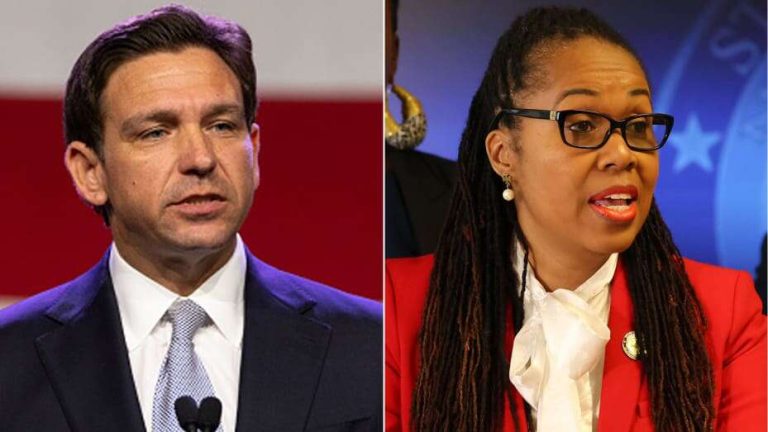
The Suspension of Monique Worrell: Unraveling a Political Chess Game
In a surprising and dramatic move, Florida Governor Ron DeSantis suspended Monique Worrell, the state attorney for Florida’s Ninth Judicial Circuit. The suspension came with allegations that Worrell had been under-prosecuting criminals in her jurisdiction, raising questions about the true motives behind this decision and the impact it could have on the political landscape.
Monique Worrell, a Democratic elected official who assumed office in 2021, found herself at the center of a storm of accusations and political maneuvers. Governor DeSantis, a prominent figure in the Republican Party and a potential contender in the Republican presidential primary, wielded his executive power to suspend Worrell, a move that drew attention and speculation.
The executive order signed by DeSantis and Secretary of State Cord Byrd accused Worrell of “systematically” allowing criminals to evade incarceration through the dropping of charges or refusal to allege provable facts. However, Worrell fired back, denouncing the suspension as a result of political gamesmanship and a “false narrative.” She maintained that the move was not about policy or her actual performance as the state attorney.
The announcement of Worrell’s suspension was made at a surprise press conference, where Governor DeSantis accused her of being “clearly and fundamentally derelict” in her duties. The executive order labeled her actions as “neglect of duty and incompetence,” claiming that she had abused her discretion in deciding which cases to pursue.
DeSantis defended his actions, acknowledging the discretion that prosecutors hold in choosing cases to bring forward but asserting that Worrell had taken it to an extreme. The suspension took immediate effect, and DeSantis appointed Orlando Judge Andrew Bain, a reported member of the conservative Federalist Society, to take over her role.
This isn’t the first time DeSantis has taken executive action against an elected state attorney over alleged leniency in criminal prosecution. Last year, he suspended Hillsborough County State Attorney Andrew Warren for his stance on enforcing state restrictions related to abortion and gender-related surgery. The subsequent legal battle ended with a federal judge affirming the suspension but also recognizing the violation of Warren’s free speech rights.
Monique Worrell’s suspension raises concerns about the influence of politics on the justice system and the use of executive power to shape the narrative. As she vows to fight her suspension and continue her reelection campaign, the public watches closely. Worrell’s case sheds light on the delicate balance between political agendas and the pursuit of justice, leaving us to ponder whether this move was a genuine attempt to uphold the law or a strategic move in a larger political chess game. The aftermath of this suspension will undoubtedly continue to spark discussions about the role of elected officials and the implications of their decisions in a democratic society.

